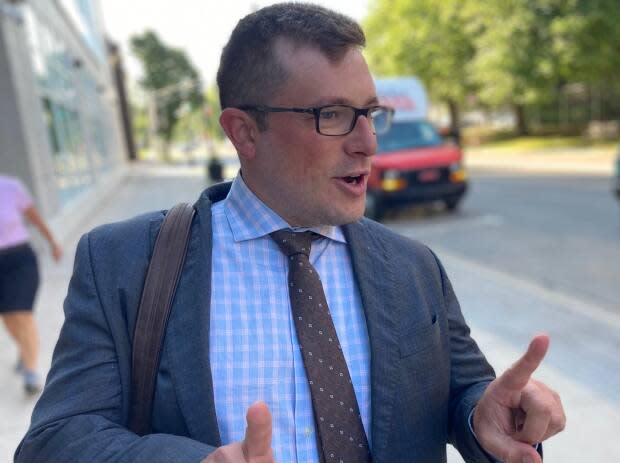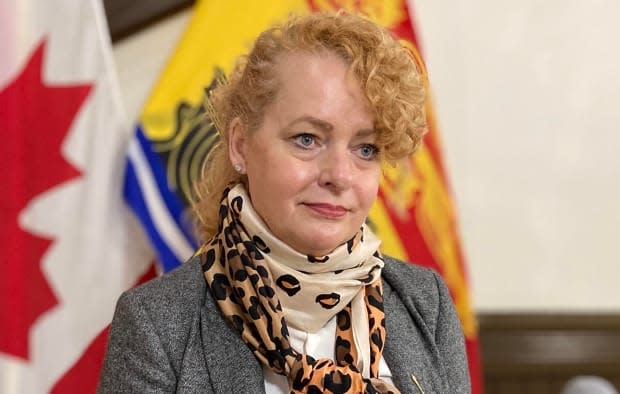MLAs call out belittling, patronizing language used by legislature colleagues
Two Green MLAs have called out some of their legislature colleagues for examples of what they call belittling, demeaning and patronizing language during last week's sitting.
Kevin Arseneau said he's had enough of politicians referring to "our" Indigenous people, a phrase he said conjures up a colonial attitude.
And Megan Mitton said she got overwhelming support on social media after revealing an unidentified older male MLA called her "young lady" to her face.
"Ultimately, language matters," she said. "It really matters what we say to each other and about each other. I think we should move calling women 'young lady' out of our vocabulary, especially in the workplace but probably everywhere else."
Mitton won't identify the member but points out that she is, at 34, the youngest MLA in the house and one of only 14 women, "so there's quite a few people who it could be."
Arseneau said he has heard the possessive pronoun "our" used for Indigenous people for a long time but decided to speak out after last week's Speech from the Throne. It said MLAs had gathered "on the ancestral territory of our Indigenous people."
"It refers to colonialism," he said. "I find it's extremely disrespectful … to take possession of people."

Two days later, Liberal leader Roger Melanson said he wanted to contribute to "a strong partnership with our First Nations."
Melanson used the phrase while congratulating St. Mary's First Nation Chief Alan (Chicky) Polchies on winning a new term in band elections.
Polchies said in an interview he'd also like to see the use of "our" disappear.
"Indigenous people are the Indigenous people of this land," he said. "When you refer to 'our,' we don't belong to any group or government other than our own. We belong to the land of Turtle Island. It's the Indigenous people of the territory."
The official French translation of the Throne Speech did not use "our."
Aboriginal Affairs Minister Arlene Dunn won't say whether the phrase should have been in the English version but commented, "I would not refer to First Nations as 'our' First Nations. I refer to First Nations as partners. Full partners."
She notes she has nine nieces and nephews who are Indigenous. "My preference is to call them partners, and be respectful."

Arseneau said if Dunn had read the Throne Speech ahead of time, "she could have told government to change that part of it.
"I know a lot of people in that [Progressive Conservative] caucus, if they'd read it in advance, would have flagged it."
Liberal MLA Lisa Harris, who became her party's aboriginal affairs critic after the provincial election, has been vocal in criticizing the Higgs government on its refusal to hold an inquiry on systemic racism but said the implications of the word "our" hadn't occurred to her.
"I never really thought about that question before but it's a good question," she said, suggesting the word could be seen as a way to be inclusive.
"I could only begin to imagine what it means, but I think we're blessed to have First Nations in our province, so I guess we're owning the fact that we have First Nations in the province, the same as our francophone population or anglophone population.
"To me, they're all to be celebrated."

Mitton said 98 per cent of the people who responded to her Instagram post about being called a "young lady" agreed with her that the term was ageist and sexist.
"In a workplace, but especially workplaces that are dominated traditionally by men, there's a power dynamic that exists, so I think it adds an extra layer to women maybe not feeling they belong because historically they haven't," she said.
Fourteen women were elected as MLAs in September's election, a record number.
Mitton said none of her fellow female members from other parties had approached her to talk about her post. She said that may be because COVID-19 guidelines have made discreet one-on-one conversations difficult in the corridors of the legislature.


